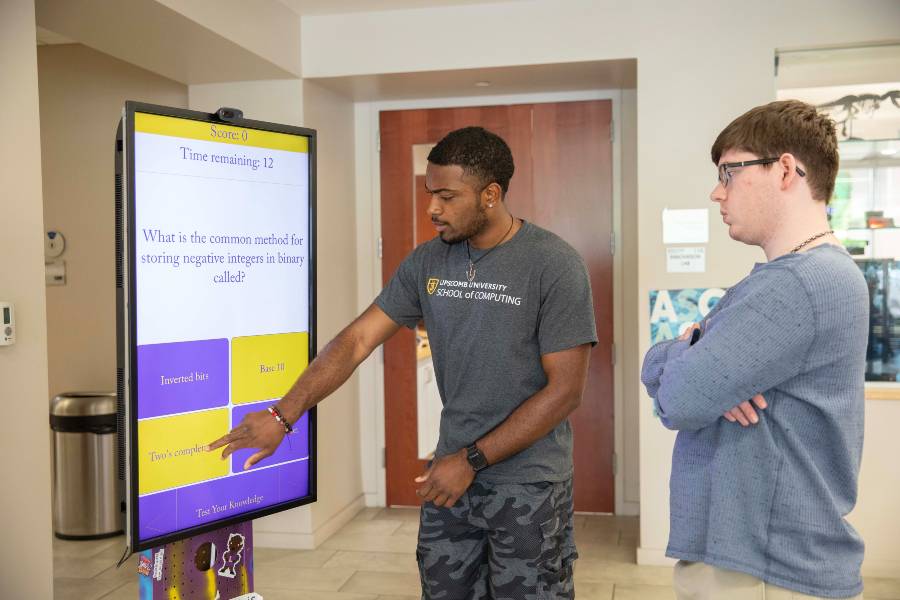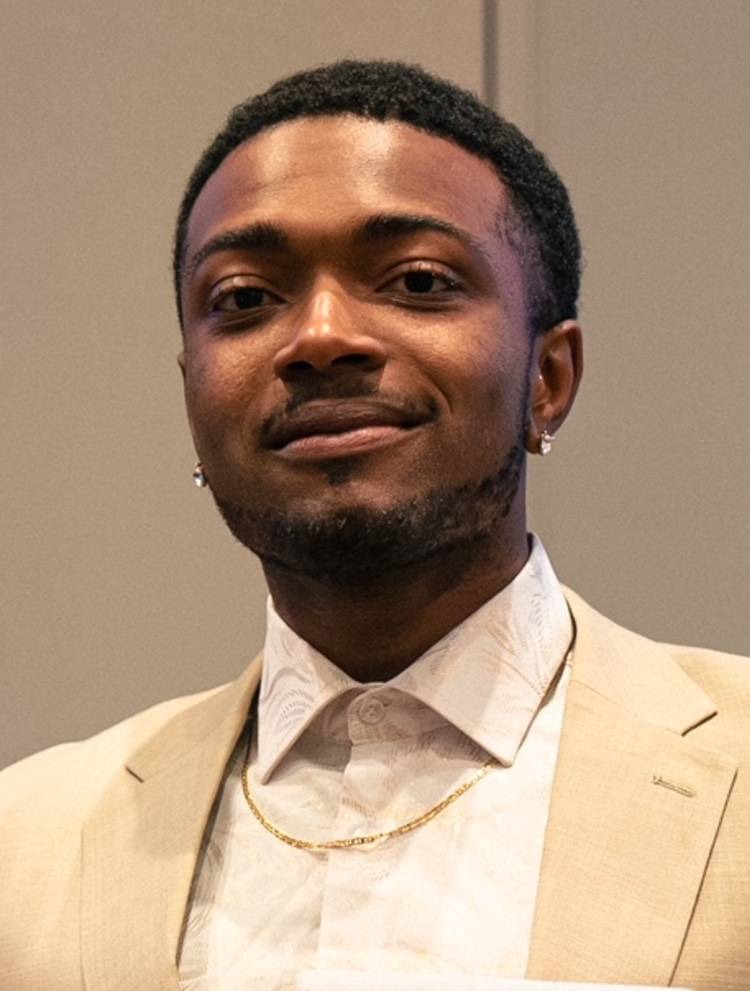Graduation Spotlight: Alexander turns childhood curiosity into career
Kim Chaudoin |

Justin Alexander, left, demonstrates L.U.K.E.
When Justin Alexander graduates this May with a Bachelor of Science in software engineering from Lipscomb University’s Raymond B. Jones College of Engineering, he’ll carry more than a diploma — he’ll carry the culmination of a college experience marked by innovation, leadership, and a deepened faith.

A native of Hendersonville, Tennessee, Alexander first discovered his passion for technology as a young gamer with a curious mind.
“I think back to my morning commute as a first grader playing MarioKart DS in my mom's backseat,” he recalled. “I think that AI was the first system I ever loved enough to dissect the design of, though I didn't know that's what I was doing at the time.”
At Lipscomb, that early interest evolved into a multifaceted pursuit of technical mastery and human-centered design.
“My time at Lipscomb has offered several opportunities to further my itch to understand,” explained Alexander. “I've tried to take full advantage of this by digging my teeth into a wide variety of projects, from teaching a neural network to how to walk to designing user-focused mobile apps to creating original games.”
His projects have spanned everything from artificial intelligence to indie video games — including AD BLOCKER, now available on Steam — but one initiative stands out among the rest: the L.U.K.E. project.
As the team lead for the Lipscomb University Kiosk Experience (L.U.K.E.) for the past three semesters, Alexander led a student-driven effort to create an interactive kiosk system designed to help campus visitors navigate and explore. L.U.K.E. is built around a “carousel” of screens, each with a different function. Featuring an interactive map, photo gallery, video player, department directory, a trivia game, whiteboard and more, L.U.K.E. was developed with accessibility and adaptability in mind.
L.U.K.E. is currently on display in the Fields Engineering Center. It was intentionally designed to be as mobile as possible. Alexander said that everything from photos to videos can be updated right from the Windows File Explorer, without needing a technical background. Built using Processing 4 and powered by Java, the kiosk blends user-friendly design with technical sophistication — a hallmark of Alexander’s approach to software engineering.
“To me, Lipscomb shines in that it provides a rounded approach to education that values replicating the real world,” he said. “Computer scientists often joke about lacking ‘soft skills,’ but I feel that from the moment I took Lipscomb Experience my first semester, the university has challenged me to lean in and learn to speak out.”
Alexander’s spirit of engagement has extended beyond the classroom. He was president and founder of Lipscomb’s Game Art and Design student organization, served in Vanderbilt’s Spirit of Gold marching band as both a member and section leader, and held leadership roles in the Association for Computing Machinery and Tau Beta Pi honor society.
His academic path was matched by a journey of personal and spiritual growth. Bible courses that he took later in his time at Lipscomb, he said, reshaped how he views faith in his daily life.
“They challenged me to think through my faith critically, introducing me to concepts such as Christian discernment and rules of life,” Alexander said. “These moved my understanding of religion from something to be practiced in addition to my daily life into a means of living life itself.”
Now, as he explores opportunities in software development, consulting, product management and game development, Alexander feels well prepared — not only because of the technical expertise he’s gained, but because of the mindset he’s developed at Lipscomb.
“I feel that the School of Computing has given me opportunities to gain this critical thinking by exposing me to a wide variety of industry-standard technologies, both in my major-specific courses and in my electives,” he shares. “I appreciate the faculty's commitment to creating a four-year plan that addresses each aspect of what I can expect from a future career in the tech sphere — even as those expectations shift with new innovations.”